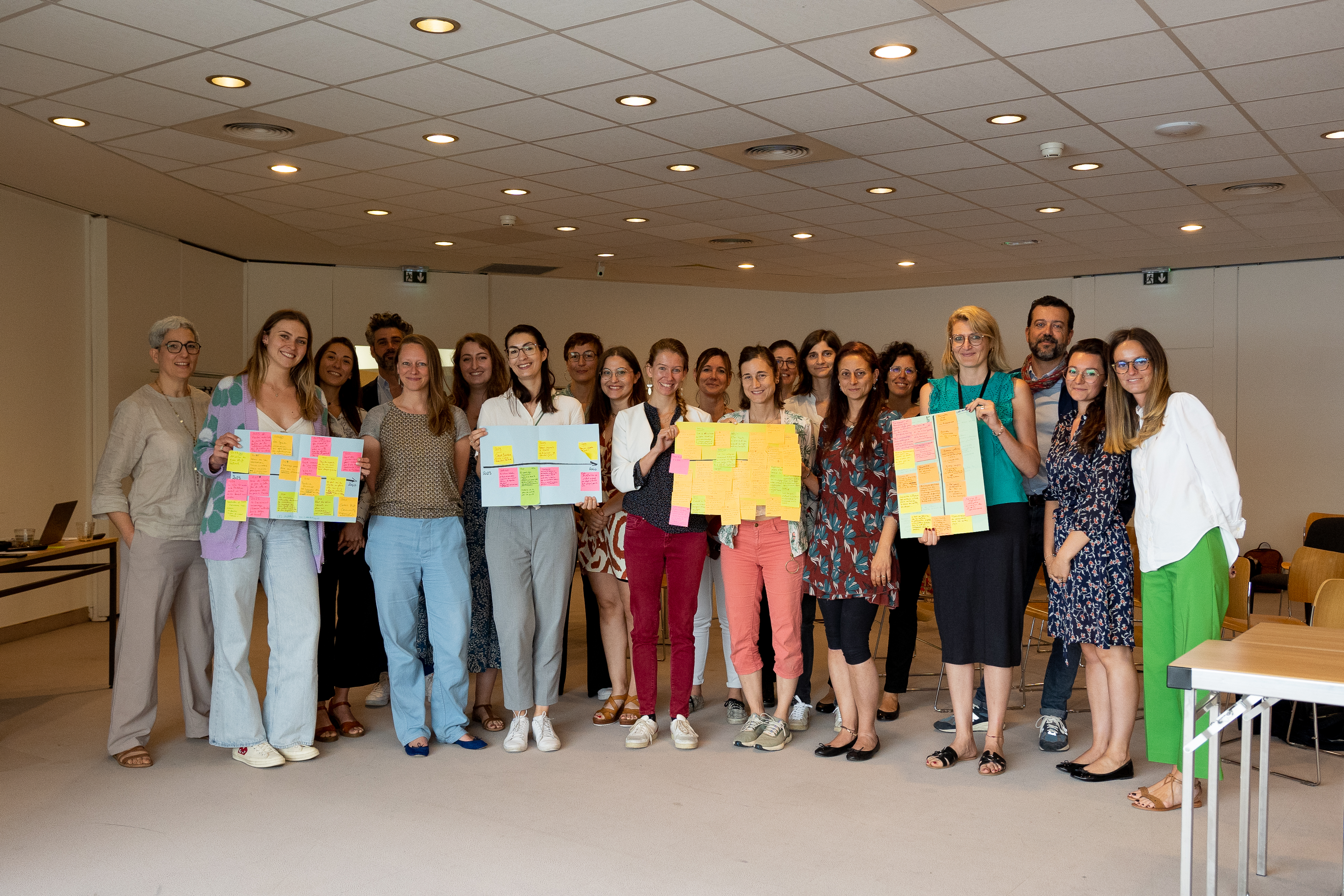
Culture in Monaco in 2040
Workshop
As part of the Green Shift Festival organised by the Prince Albert II of Monaco Foundation, the first edition of which took place from 7 to 10 June 2023, a design fiction workshop was offered to Monegasque cultural entities, in collaboration with Imagine 2050 and the Principality's Department of Cultural Affairs.
This reflection session, entitled ‘Culture in Monaco in 2040’, was held on 9 June 2023 at the Rainier III Auditorium by Yasmina Auburtin, new narratives consultant, and Rémi Sabouraud, creative process facilitator, with nineteen participants from the fields of art, communication and ecology.
The aim of the workshop, which focused on culture as a vector for positive change in our societies in transition, was to project its participants into a desirable future where major actions in favour of the environment could have been accomplished. Through the development of projection scenarios and drawing inspiration from the principles of collective intelligence and the theory of change in psychology, the session aimed to chart new trajectories for our imaginations and develop a collective roadmap for the years to come.
Storytelling and imaginaries super power
Stories are at the heart of human history. For almost 70,000 years, they've helped us understand each other, get along, work together, and ultimately build societies. Sharing a common story means sharing values, beliefs, dreams, and desires. Stories anchor us in a certain conception of reality and set us on a certain path. Thus, by using the power of storytelling, we can influence individuals, their way of thinking about the world and their behaviour within it.
The worlds of politics, advertising, marketing and lobbying have seized upon this power to shape dominant narratives that, unfortunately, often run counter to scientific recommendations in terms of environmental protection and energy management. The principle of moderation is portrayed in a very negative light: there is talk of bans, obligations, speed limits, taxes, punishments, moralising speeches, etc. These are not very encouraging prospects, which hinder the possibility of change. Yet a frugal world is above all a network of beneficial co-benefits: job creation, human health, planetary health, social justice. To win this battle of imaginations, the challenge is to reverse values by playing on the same dynamics: let us continue to want more, but more reconnection, cooperation, community, inclusion, health, etc., rather than more material goods, travel, technical performance, etc.
Journalists, artists, activists and scientists are now reclaiming the power of storytelling to construct new ecological narratives centred on respect for life, militant joy and collective strength. Inspiring examples are multiplying and feeding off each other, with a common focus on the importance of starting from the local level to accelerate the transition, reconnect with our immediate environment and rebuild ties. Cultural ecology sees culture as the glue that holds our societies together and as a gateway to an ecology of sensitivity and empathy. Proof that this positive sustainable future is not just a utopia.
Future scenarios and their challenges
Today, there are three possible scenarios: denial (business as usual), which refuses to acknowledge that it is impossible to exploit limited resources indefinitely; techno-solutionism, which consists of betting that human ingenuity will solve all challenges; and the option of sobriety. The first two scenarios reveal their limitations in the face of the urgency and gravity of the situation. We all now know that we cannot continue on the same path from an energy perspective, particularly given the increasing scarcity of water and raw materials. The third option involves accepting a structural change in our lifestyles. But what might this sober world look like? How can we be happy in it?
The various stages of the workshop consisted of imagining what culture would look like in this desirable future of sobriety, what its new mission and operating methods would be, and what role it could play in this transition. To do this, three main areas were explored: the culture of indigenous peoples, as a way to change our view of ecosystems and build a resilient society; citizen culture as a pillar of transformation in a society where cultural facilities have become temples of a new democratic momentum; and connecting culture as a link between politics, science, business and citizens, so that culture and artists become ambassadors for a new social project, where our new roles and professions would serve to bring about profound and necessary change.
